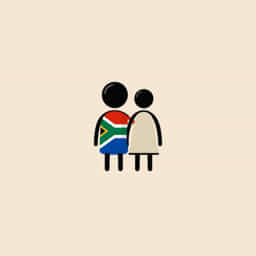Friendship is one of the most cherished connections in human life. It transcends culture, language, and geography, allowing people to share their experiences, laughter, support, and companionship. When you want to talk about ‘my friend’ in different languages, the meaning remains heartfelt. In the Tswana language, a Bantu language spoken primarily in Botswana and parts of South Africa, the term for ‘my friend’ carries cultural warmth and significance. Learning how to express simple, sincere phrases like this not only helps with communication but also deepens cross-cultural appreciation.
Understanding the Tswana Language
Tswana, also known as Setswana, is one of the official languages of Botswana and is also spoken in South Africa, Zimbabwe, and Namibia. It is part of the Sotho-Tswana language group within the larger Bantu language family. Setswana is a tonal language with rich oral traditions and an expressive vocabulary. It is used in daily conversation, literature, music, and media, and forms a core part of the cultural identity of the Tswana people.
Importance of Learning Common Phrases
Learning everyday words and phrases in Tswana, such as greetings or expressions of affection, can be a wonderful entry point into the language. Saying ‘my friend’ in Tswana can help you build rapport when engaging with native speakers, show respect for their culture, and create lasting impressions in social or community settings.
How to Say ‘My Friend’ in Tswana
The Tswana phrase for ‘my friend’ is‘tsala ya me’.
- Tsala– friend
- Ya me– my (possessive form)
Put together, ‘tsala ya me’ literally translates to ‘friend of mine,’ and is the most natural way to refer to a close friend in the Tswana language. This phrase can be used in both formal and informal settings when referring to someone you value as a companion or confidant.
Pronunciation Tips
To pronounce ‘tsala ya me’ correctly:
- Tsala: The ‘ts’ is pronounced as a soft ‘ts’ sound, like in ‘cats.’
- Ya: Pronounced like ‘yah.’
- Me: Pronounced like ‘meh.’
So when spoken together, it would sound like: tsa-lah yah meh.
Using the Phrase in Sentences
To make your use of the language more dynamic, here are a few example sentences using ‘tsala ya me’:
- ‘Ke rata tsala ya me.’ – I love my friend.
- ‘Tsala ya me o nna mo Gaborone.’ – My friend lives in Gaborone.
- ‘Ke tsamaya le tsala ya me.’ – I am going with my friend.
- ‘Tsala ya me o botlhale.’ – My friend is smart.
These sentence structures are helpful for expressing emotions, actions, and observations involving your friend. They also serve as a good way to practice sentence formation in Setswana.
The Cultural Significance of Friendship in Tswana Communities
In many African communities, friendship is seen not just as a social bond but as a meaningful commitment. Among the Tswana people, relationships are deeply rooted in values such as respect, humility, and mutual support. Friends are considered extended family and play important roles during life events like weddings, funerals, and celebrations. Referring to someone as your ‘tsala ya me’ carries a tone of endearment and respect.
Social Norms and Expressions of Friendship
Friendships in Tswana culture are often long-lasting and involve a sense of responsibility. It is common to share meals, help one another with work, or provide emotional support without expecting anything in return. Expressing that someone is your friend implies that you trust and care for them, and they hold a valued place in your life.
Similar and Related Words
To deepen your Tswana vocabulary related to friendship, here are a few additional useful words:
- Metsala– Friends (plural)
- Sogwela– Companion or mate
- Botsalano– Friendship
- Tshepiso– Promise (often made between close friends)
- Tshireletso– Protection (a role often assumed by a close friend)
These terms can be used in conversation or writing to reflect deeper aspects of friendship and companionship.
Why It Matters to Learn Indigenous Phrases
In a globalized world, learning indigenous languages like Tswana helps preserve cultural identity and heritage. Even a small phrase such as ‘my friend’ reveals the warmth and structure of how relationships are viewed in a specific society. It also promotes inclusivity, mutual understanding, and linguistic diversity.
When you use a term like ‘tsala ya me’ with genuine intent, you are not just speaking in another language you are entering a different cultural space with humility and curiosity. This simple gesture can open doors to friendship, hospitality, and learning.
Practical Tips for Learning More Tswana
- Practice simple phrases daily, including greetings, introductions, and common nouns.
- Watch or listen to Tswana media such as radio shows, music, or children’s stories.
- Engage with native speakers whenever possible, online or in-person.
- Use a notebook to build your vocabulary and practice sentence structure.
- Be patient with pronunciation and tone language learning is a process.
A Simple Phrase with Great Meaning
Language is more than words it reflects how we think, connect, and live. Saying ‘my friend’ in Tswana as ‘tsala ya me’ is not just a linguistic fact but a window into the values of warmth, loyalty, and community. Whether you are learning Tswana for travel, culture, or personal growth, mastering small phrases like this lays the foundation for meaningful communication and respectful exchange. Next time you speak with someone who speaks Setswana, try saying ‘tsala ya me’ and see how much it brightens their day. It’s a small gesture with a big heart.
